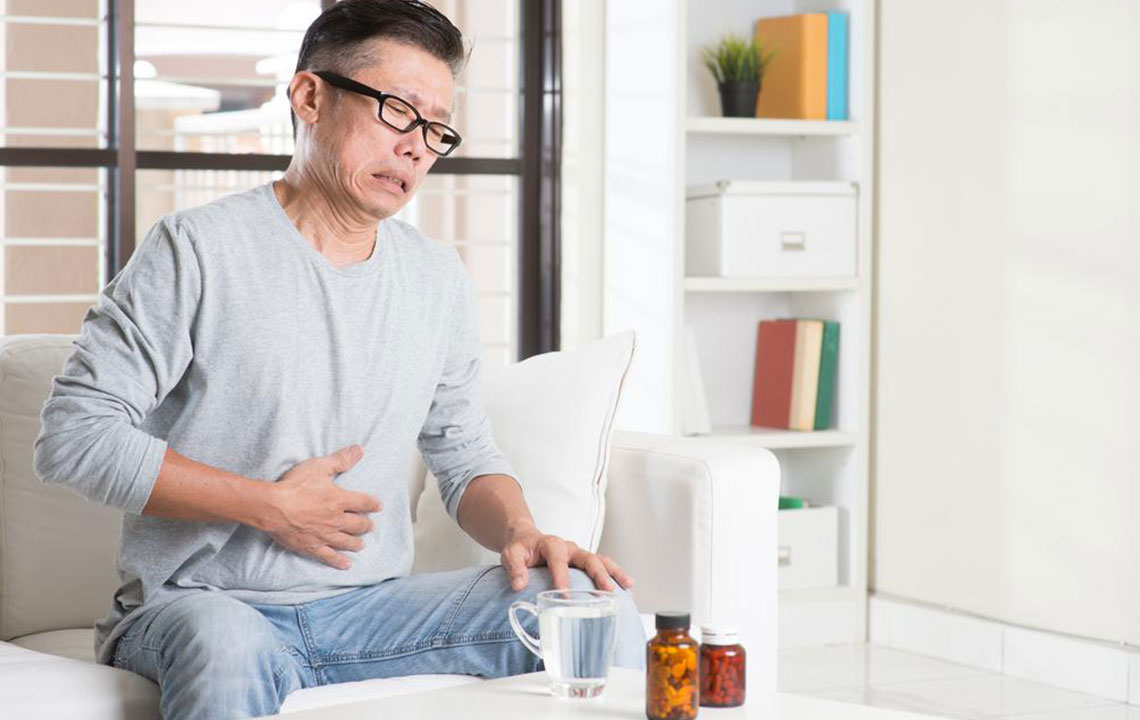How To Treat Hemorrhoid At Home
A hemorrhoid is often referred to as piles. It pertains to inflated blood vessels positioned in the soft muscles of the walls of the bottom portion of the rectum and anus. Hemorrhoids manifest in the following forms:
· Mucus discharge
· Anal itching
· Painless rectal bleeding accompanied by bowel movement
They grow internally and externally in the anus and rectum.

Internal and external hemorrhoids
Internal hemorrhoids are located above the pectinate line. They are enclosed with cells that are identical to those in the intestines. External hemorrhoids appear below the line. They are wrapped with cells that look like the skin. Hemorrhoids become a topic of concern only in case they are inflammatory. This results in pain, itching, and likely profuse bleeding.
Both internal and external hemorrhoids are easily treatable. They heal automatically. As an exception, hemorrhoid could produce a problem. Anemia can happen in event of unceasing blood loss from hemorrhoid. Anemia is a deficiency of red blood cells. Internal hemorrhoids can have their blood feed discontinued. This situation leads to strangulated hemorrhoids. This, in turn, causes acute pain.
Causes of hemorrhoids
Repeated strain within the anal or lower rectal veins caused due to the following reasons can be more prone to irritation:
· Pregnancy
· Fitness
· Standing or sitting for long periods
· Spending a long time on the toilet
· Chronic constipation or diarrhea
· Eating a low-fiber diet
· Coughing
· Sneezing
· Puking
· Holding your breath while straining to do physical labor
This is an underlying presumption about the causes of hemorrhoids.
5 natural home remedies for seeking hemorrhoid relief
Having the right treatment for enlarged hemorrhoids is of utmost importance since they worsen over time. Try out seeking instant pain relief from most hemorrhoid symptoms with some natural home remedies. The following simple tips will help take away the pain.
Talk with your primary care doctor before taking on these home treatments for seeking hemorrhoid relief.
- Daily intake of high fiber in your diet and a healthy amount of water Daily intake of fiber-rich foods, like brown rice, whole grains, and nuts can reduce rectal bleeding as well as acute pain from hemorrhoids. Also, drink plenty of water every day to fight constipation.
- A combination moderate to aerobic exercises You can gain health benefits from moderate as well as vigorous aerobic exercises. Take a brisk walk (moderate) or running (vigorous) about half an hour in the park or on the city streets every day for relieving the rectal strain that causes hemorrhoids.
- Get yourself soaked in a sitz bath or hip bath Sitz bath is a warm water bath used for everyday personal hygiene. Also known as a hip bath, you can only immerse your hips while sitting. The term “sitz” is derived from the German word “citizen,” which means to sit. Sit with your booty and hip immersed in the warm water for 20 minutes after each bowel movement to get relief from pain or itching in the genital area and also muscular back spasms. Local pharmacies sell small medical plastic bathtubs that fit over a toilet seat else you can fill a normal bathtub with 3 to 4 inches of hot water and sit up on your hips.
- Apply a warm and wet tea bag Discomfort for external hemorrhoids can be removed by employing a warm and wet tea bag. Tannic acid present in the tea decreases swelling and soothes the pain. It helps to clot blood thus ending the bleeding.
- Ice over Blood vessels in and surrounding the anus and lower rectum inflate with hemorrhoids. Coldness helps to contract the inflation, bringing respite. You can sit on a bag filled with ice-filled wrapped with a thin cloth. Duration must not exceed more than 20 minutes. Repeat again with 10 minutes gap in between.
When to consult a colorectal surgeon?
Early diagnosis and treatment are essential. It is recommended to seek medical help immediately if the symptoms of hemorrhoid have not eased using home remedies for over 2 weeks. Book an appointment with your primary care doctor without any delay. He may refer you to a colorectal surgeon who specializes in the diagnosis and treatment of hemorrhoids. He may recommend medical treatments, such as rubber band litigation or surgery to remove the hemorrhoids. He will prescribe you certain medicated ointments, creams, pads, and suppositories.
If none of these home remedies works, you need to remove the hemorrhoids via surgery. You also need to visit a colorectal surgeon immediately if it is the first time that your rectum is bleeding. Several different surgical and non-surgical hemorrhoid treatment options for different age groups are available today. Besides the size of internal hemorrhoids and the severity of symptoms, the selection of treatment depends on health and medical history.











